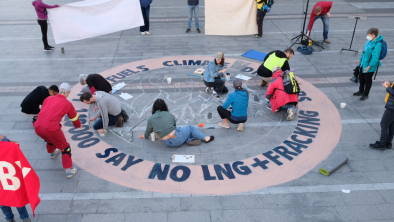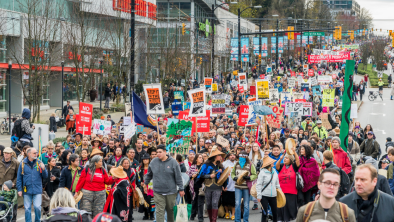BC Hydro to cancel up to 10 independent power deals and defer delivery on some others
Friday, August 30, 2013
Vancouver Sun

BC Hydro will cancel as many as 10 electricity purchase contracts with independent power producers and defer delivery dates on nine more as part of the province’s mandate to reduce the utility’s cost, Energy and Mines Minister Bill Bennett said Friday.
Bennett said Hydro has jettisoned four contracts already, adding that the deals the utility is severing are ones where project proponents had failed to meet terms of their purchase deals and agreed to their termination or delay.
“When I said to Hydro ‘find ways to spend less,’ I wasn’t specifically thinking about buying less electricity,” Bennett said “They came back and said these IPP proponents have not performed, we could get out of those contracts, or perhaps defer delivery to a date in time when we need the electricity.”
BC Hydro embarked on an ambitious plan to secure so-called clean energy from IPPs under the energy self-sufficiency policy of former premier Gordon Campbell. The policy obliged the utility to meet B.C.’s electricity needs internally by 2016 and buy a substantial amount of new power from privately developed sources.
The Clean Energy Act of 2010 enshrined the requirement that BC Hydro supply 93 per cent of the province’s electricity needs from clean, renewable sources.
The contracts BC Hydro signed with producers became lightning rods for criticism over the cost of their delivered power.
BC Hydro, in its Integrated Resource Plan released Aug. 23, determined that, between existing power sources and estimated conservation of electricity, it can meet B.C.’s short term needs, but a gap between supply and demand would emerge within 10 years.
Bennett, on Friday, said that this dynamic allowed the utility to contemplate cancelling or putting off non-performing projects to help mitigate potential consumer rate increases. Upon taking office, one of the first things he did as minister was put the public on notice that they should expect some increases, but hasn’t said how much.
In the resource plan, BC Hydro noted that it has deals with independent power producers for 129 different projects with 81 of those already complete and generating about 20 per cent of the province’s electricity needs.
BC Hydro, in the IRP, recommended that it select “the most cost-effective plan to meet customers’ needs within the context of the Clean Energy Act.”
Bennett wouldn’t identify which of the 48 projects under development are due for cancellation or delay, but BC Hydro estimates cancellations will cut back its contractual commitments to buy 1,600 gigawatts of electricity per year by 2021. In 2012, it bought 10,827 gigawatt hours of power from IPPs.
As part of the cancellation, Bennett says the utility has agreed to pay some of the companies’ “sunk costs,’’ such as environmental studies, work with First Nations, engineering drawings and site preparation.
Bennett says paying those costs will be less expensive for BC Hydro in the long run than paying courts costs.
NDP energy critic John Horgan greeted Bennet’s announcement as good news that “sends a message to the IPP community, the so-called clean energy community, that the party is over and that feasting at BC Hydro is coming to an end. I think that’s good news for ratepayers.”
Horgan, long a critic of the government’s drive to support IPP development, had continued pressing Bennett on questions about how BC Hydro was going to manage the cost of IPP projects while open-market rates for electricity remain low due to the prevalence of electricity generated from cheap natural gas.
He added that he views the rationale that government doesn’t want B.C. to import “dirty power” as a “straw man” argument.
“In my opinion, (the Clean Energy Act) was to drive public wealth into private hands,” Horgan said.
However, Bennett said he believes the NDP opposition’s argument is “dishonest” for declaring IPP power too expensive.
“Any new generation is more expensive, that’s the fact of the matter,” Bennett said adding that Horgan’s suggestion that B.C. rely on open-market power, or power based on cheap natural gas, as irresponsible.
“That’s foolhardy to plan that way,” Bennett said.
He added that BC Hydro isn’t ripping up any contracts, it is proceeding by way of agreements with proponents that are having difficulty securing financing or permits and have done little if any work on the ground for their developments.
Calls to Clean Energy BC, the association that represents IPPs, were not returned on Friday, and energy lawyer Warren Brazier said he didn’t know enough about which contracts were cancelled to comment on whether it is a concern for the sector.
“If they were projects that were languishing or were never being developed, it might be proper for Hydro to do that,” said Brazier, a lawyer with the firm Clark Wilson LLP who represents clients in the IPP sector.


